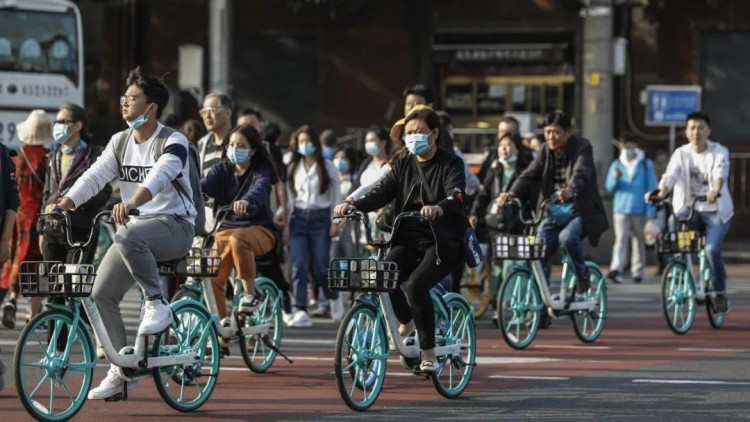Qingju Bike, the bike-sharing unit funded two years ago by China's ride-hailing giant Didi Chuxing, is seeking $500 million in financing.
At least three investment institutions are reportedly in talks with Didi Chuxing. The company declined to comment.
China's early bike-sharing landscape was shattered. Among the pioneers Ofo and Bluegogo went bankrupt because of cash flow. Mobike, another early leader, was merged with Meituan in 2018.
The bike-sharing sector was stabilized by the top three - Meituan Bike, Alibaba-backed HelloBike and Qingju Bike.
Didi Chuxing had been an investor in Ofo but later fell out with one of the founders. It took over bankrupt bike share company Bluegogo in 2018 and turned it into Qingju Bike.
To compete against the big boys Qingju Bike raised $150 million from SoftBank and Legend Capital in August - the first round of fundraising from outside investors. Another $850 million came from Didi itself.
Of the $1 billion in cash this April Didi said a considerable portion would be used for Qingju e-bikes. With its shared bikes and e-bikes the company hopes for 40 million orders a day for the next three years to "diversify growth in the Chinese mobility market."
As of August, Qingju Bike has operated in nearly 150 China cities, according to public information.
Despite the high traffic generated on paper the bike sharing business model was "bad business" all along, venture capitalist Finian Tan told South China Morning Post. Faulty economics drove the sector in the past few years.
Didi Qingju hasn't disclosed its latest financial performance. Its competitor - on-demand delivery company Meituan -saw revenue for bike-sharing increase during the third quarter of 2020 after two-years of successive losses, according to the Meituan's latest financial report.
"Bike-sharing is a more tiring and heavier commitment business than food-deliveries and car-hailing and there is no clear profit model yet," Meituan chairperson Wang Xing told magazine Caixin after the company acquired Mobike in 2018. Wang said it wasn't an easy decision to take over Mobike - which was experiencing losses.
But the leading mobile transportation application has scaled up its input. In August, Qingju Bike rolled out three new two-wheelers - with gear shifting and an embedded Beidou navigation system - in first-tier cities including Beijing, Shanghai and Chengdu.
Meanwhile, its aggressive moves challenged the authority's limits. This October, to meet with demand during the seven-day golden holidays, Didi relocated 100,000 Qingju Bikes to Beijing - exceeding the approved limit of 125,000. Beijing Municipal Committee of Communications reprimanded Qingju Bike and told it to remove the bikes.
On Oct. 23, when the company claimed it topped 23 million orders a day, almost double the rides on the same day last year, a WeChat screen shot exposing Qingju falsifying data went viral.
"With riding three minutes per order, I have to make 300 orders each day," wrote a Qingju staff member on a WeChat group. "After all the long ride, I have to bring in another 60 new clients."
Qingju Bike - ranked third after Meituan Bike and HelloBike - was accused of violating bicycle market injection laws and reporting falsified data, according to BMCC's first quarter supervision report.





